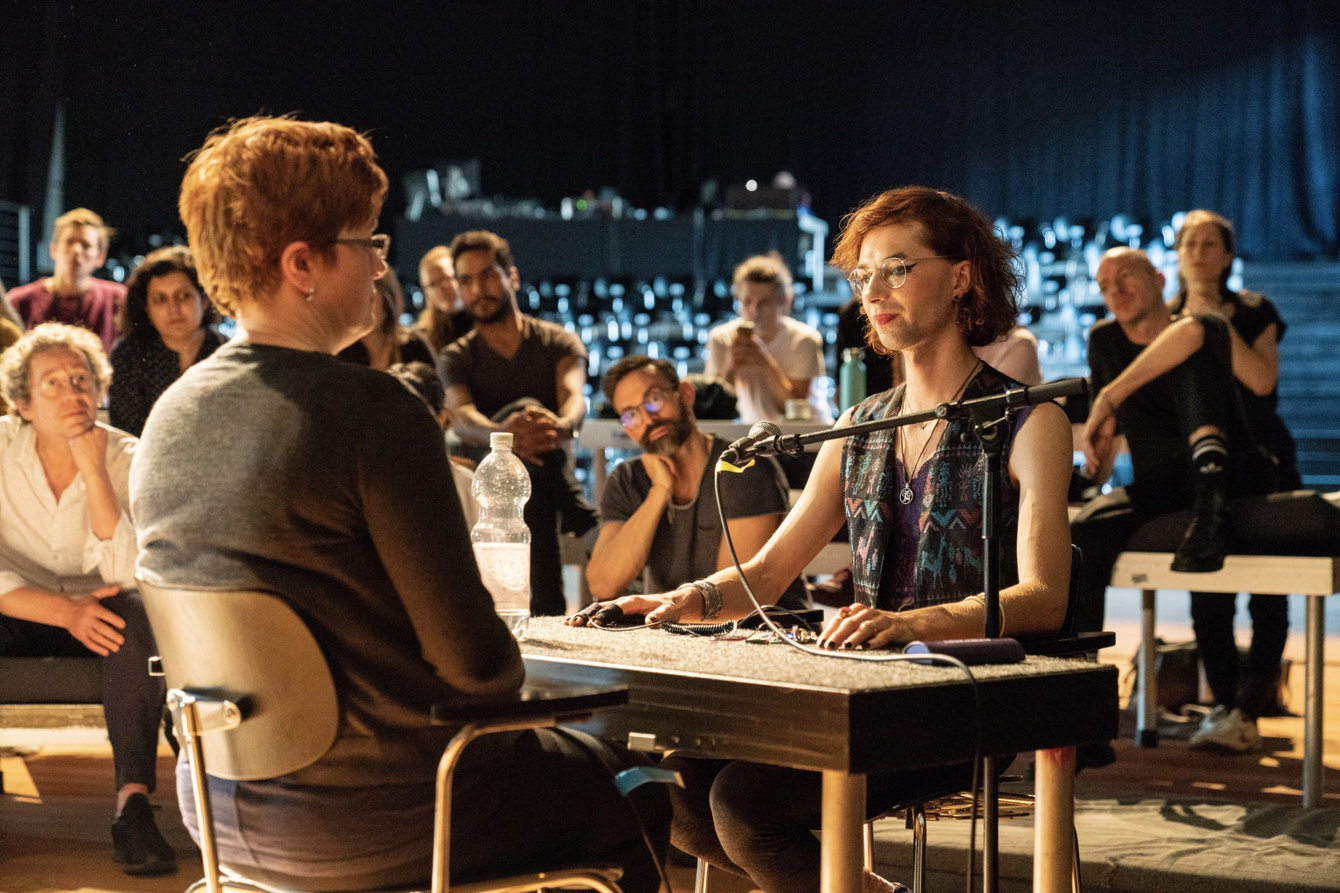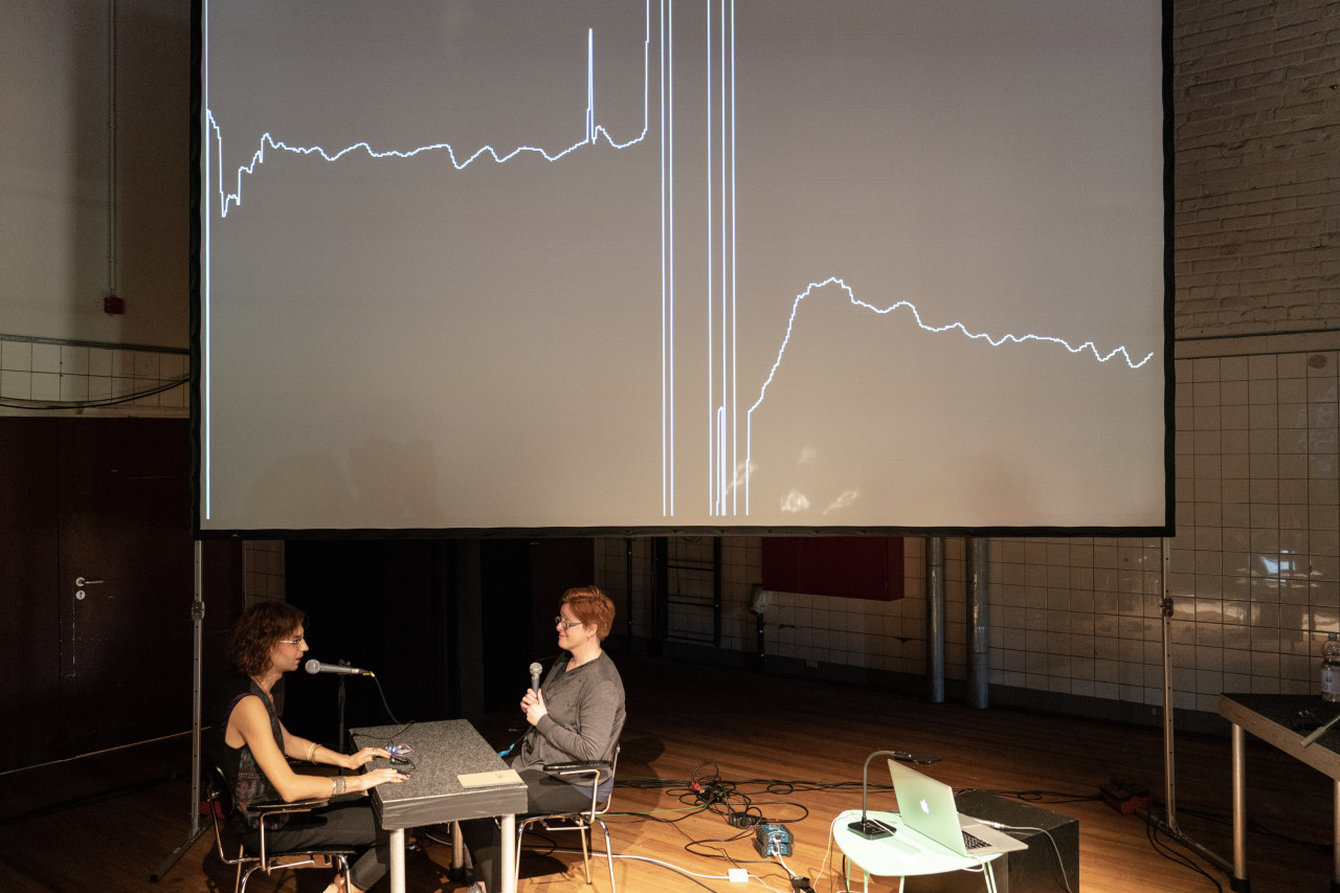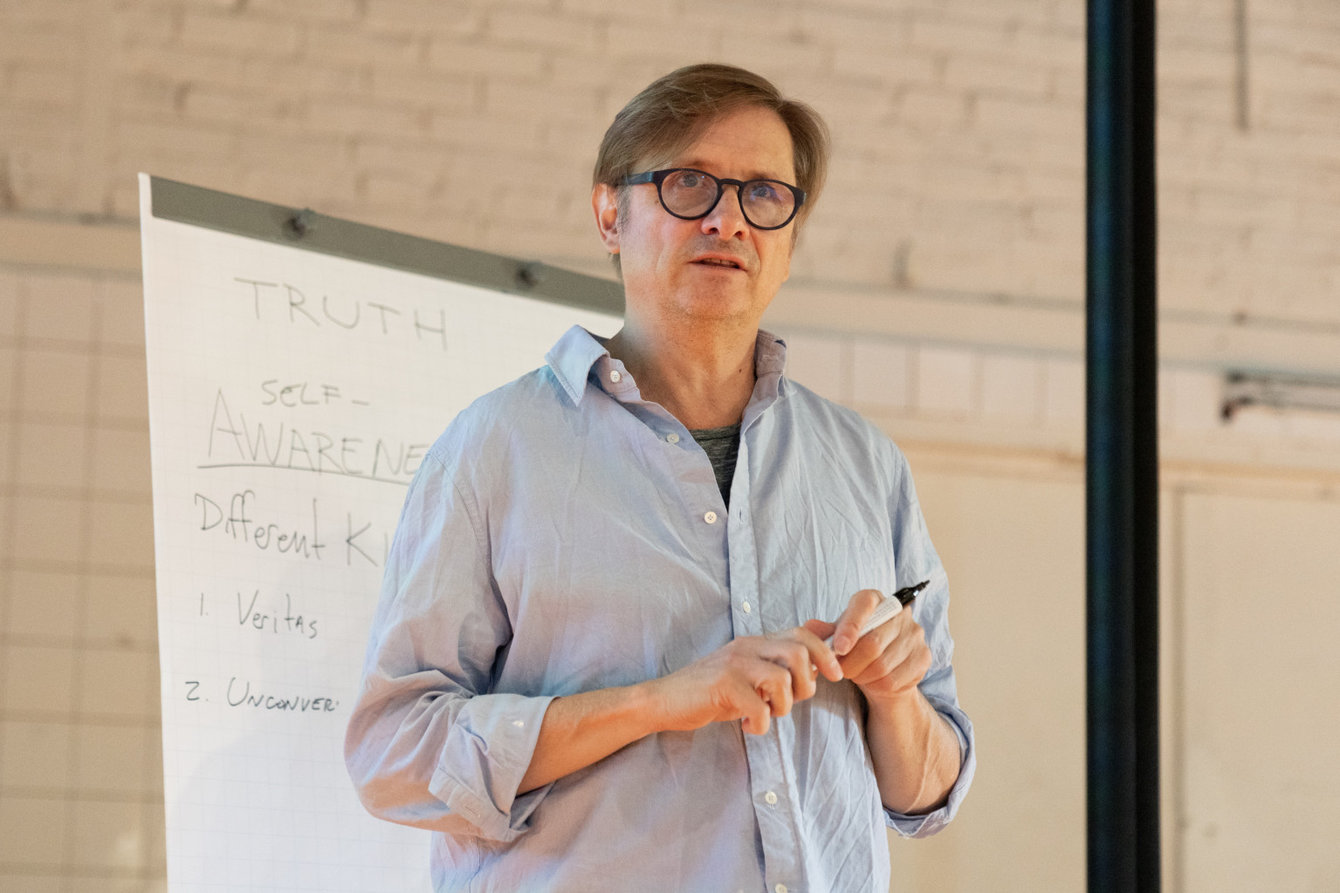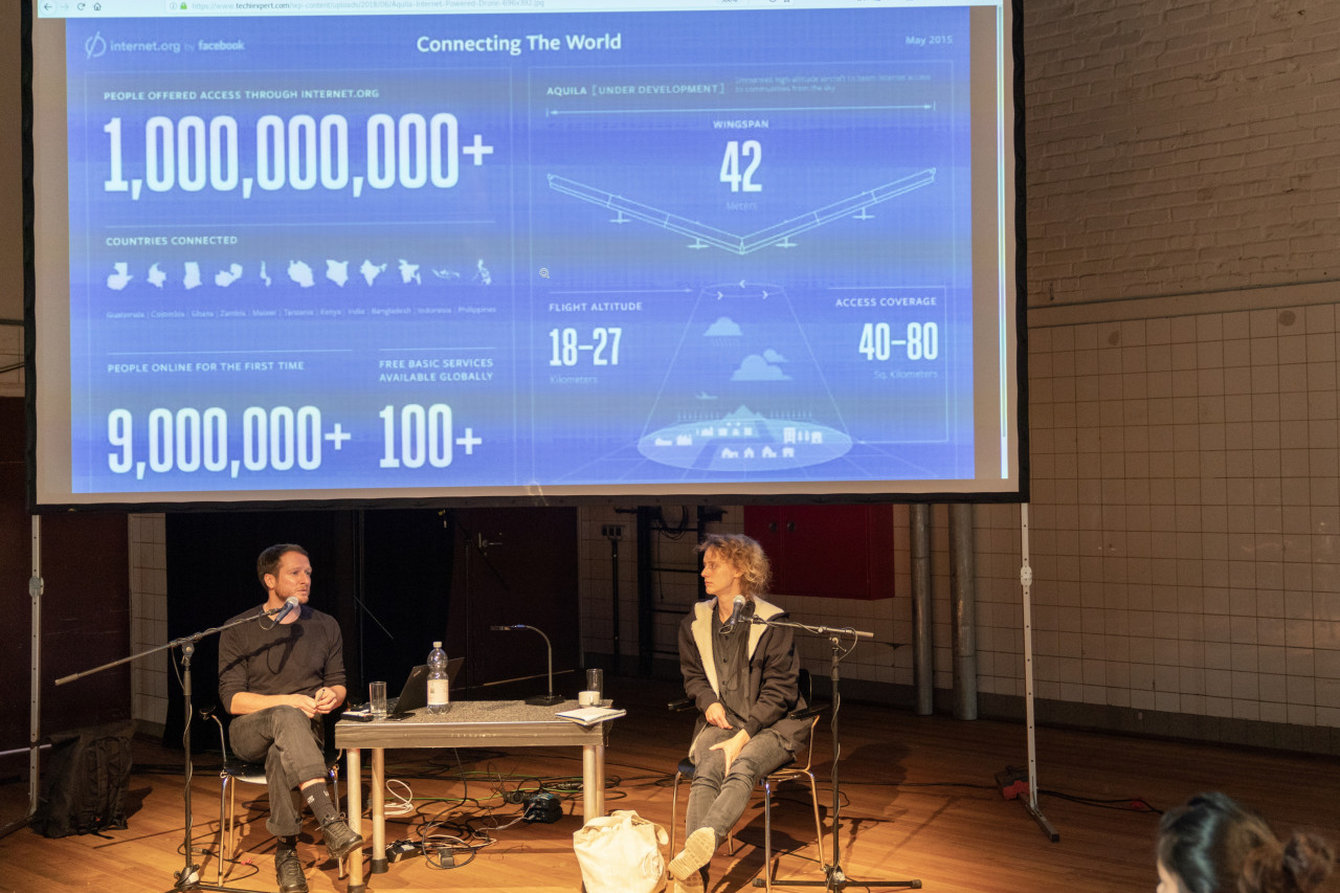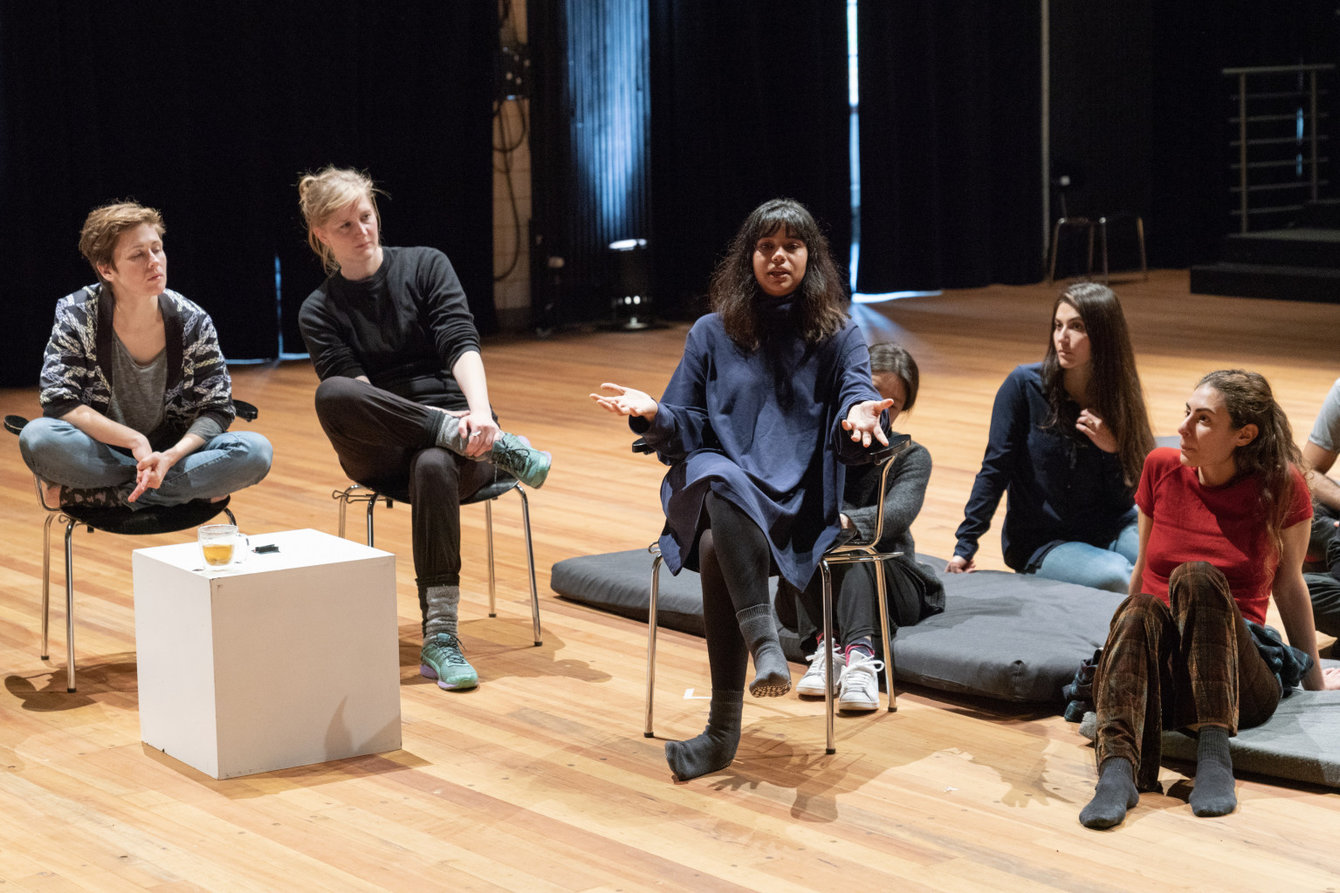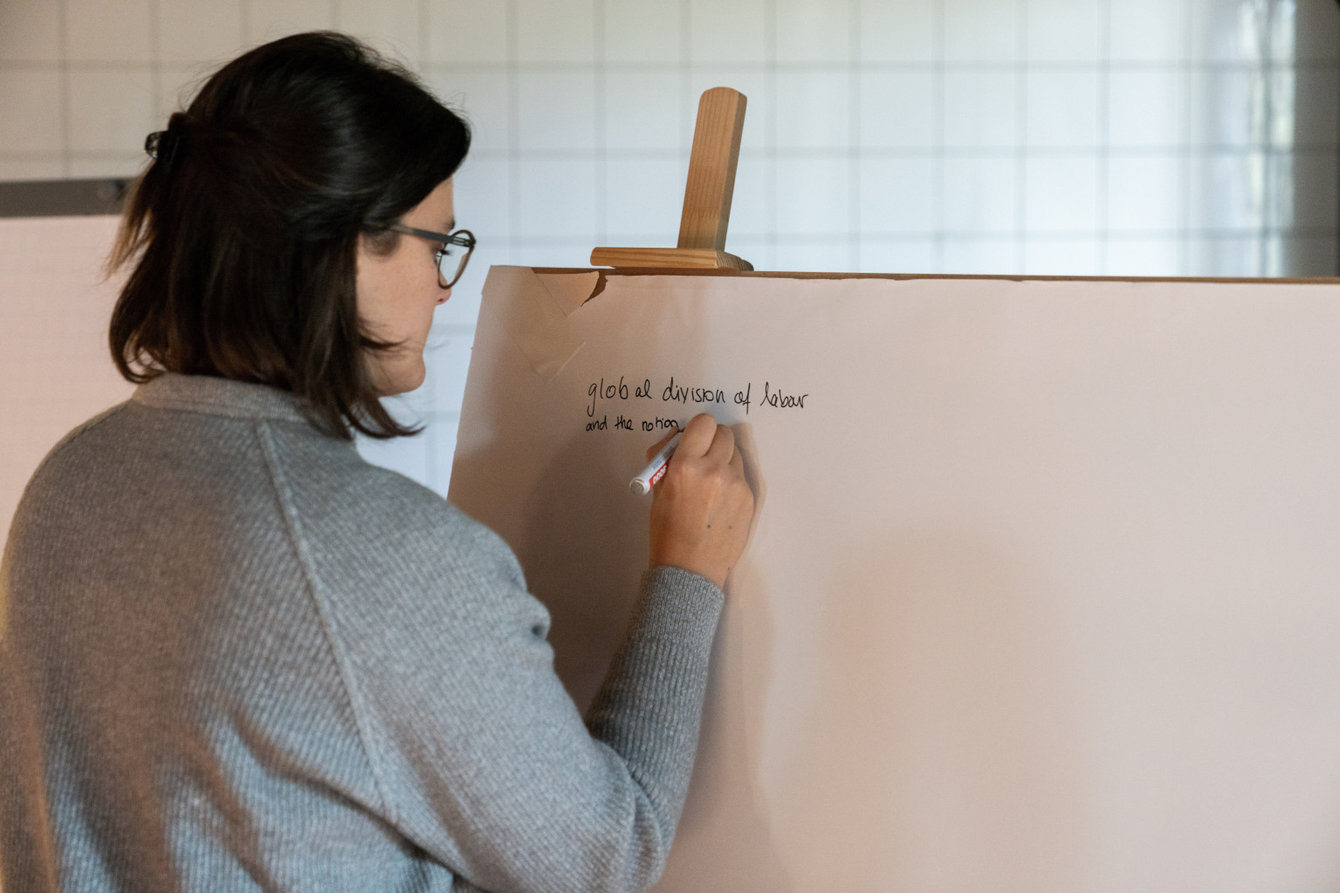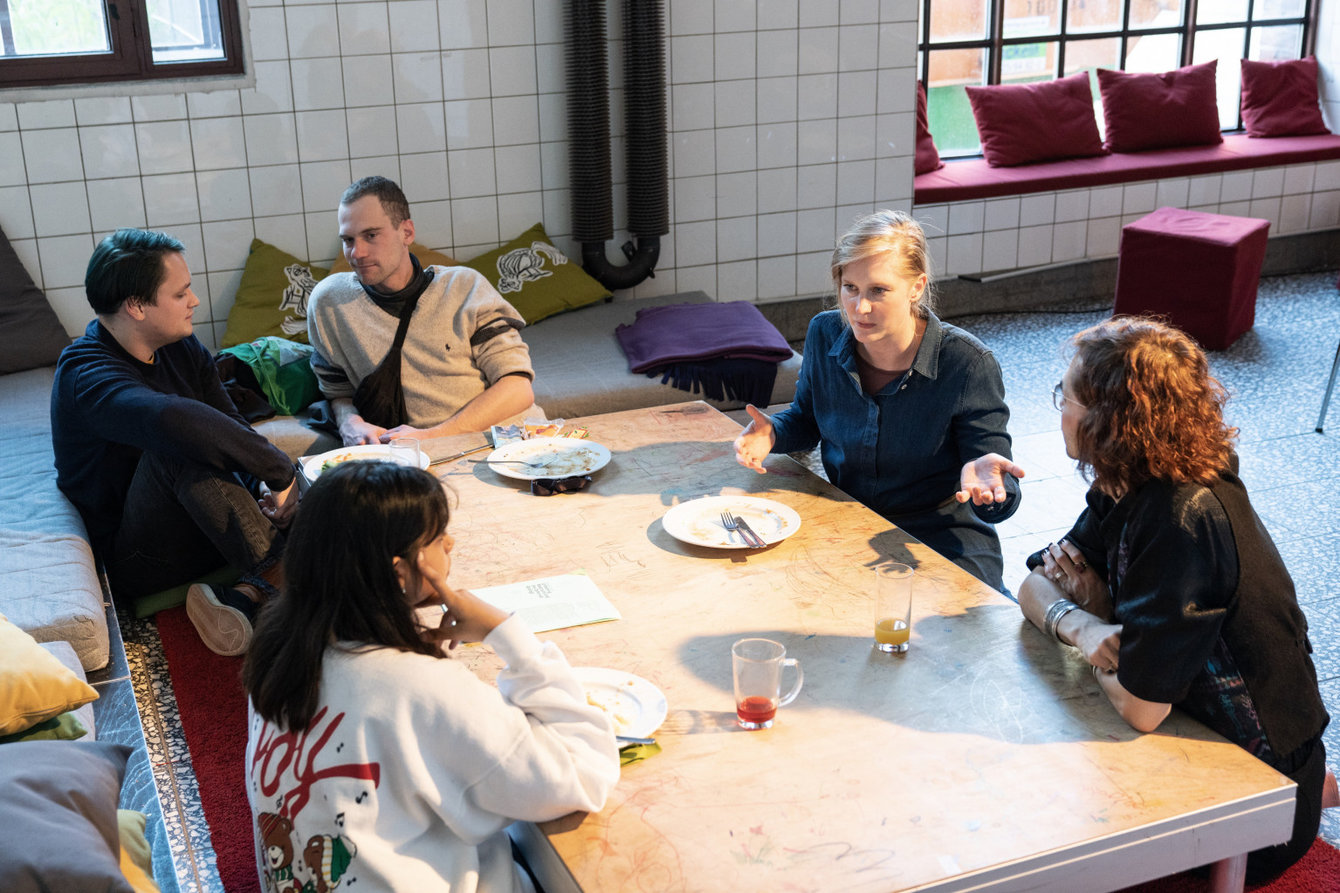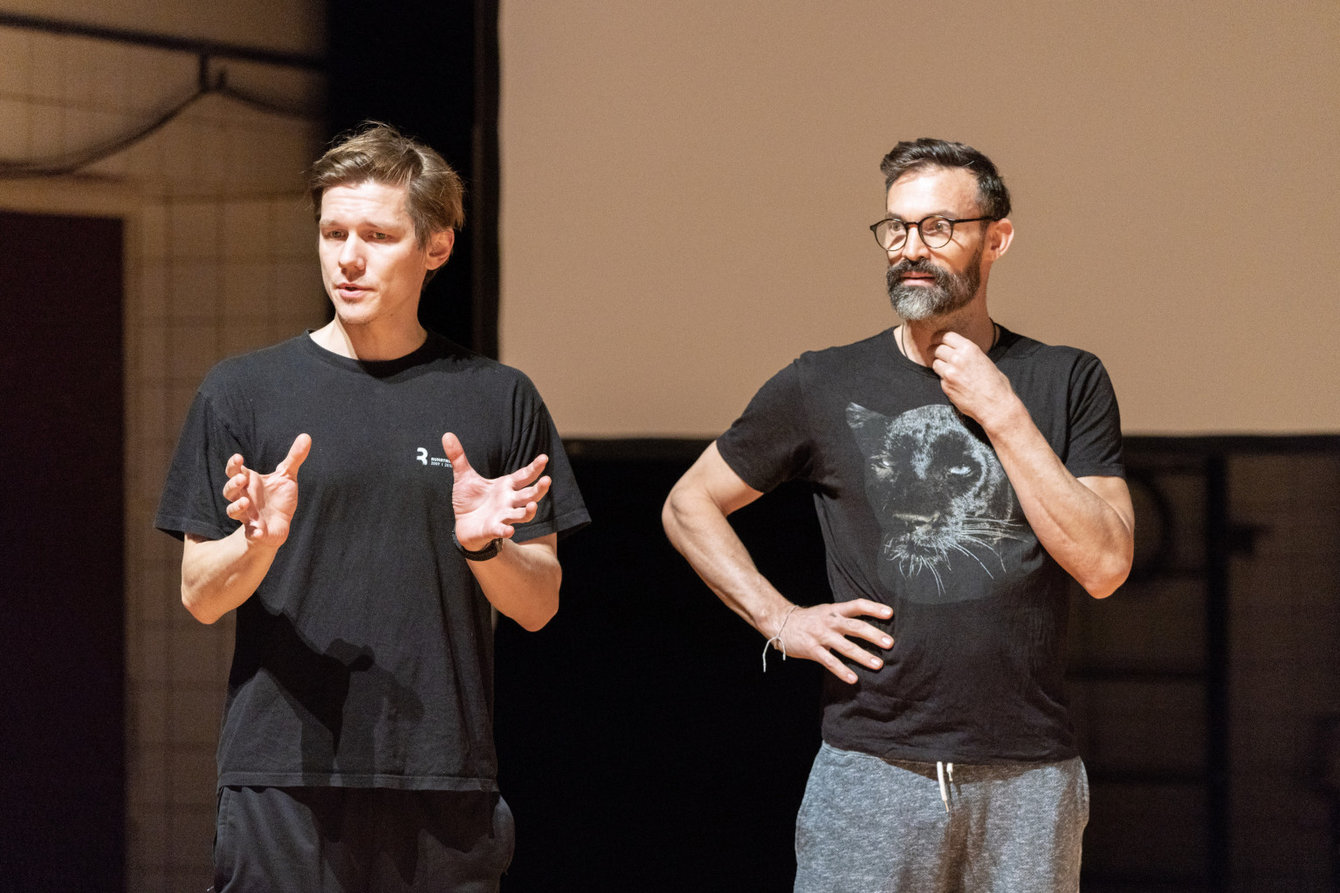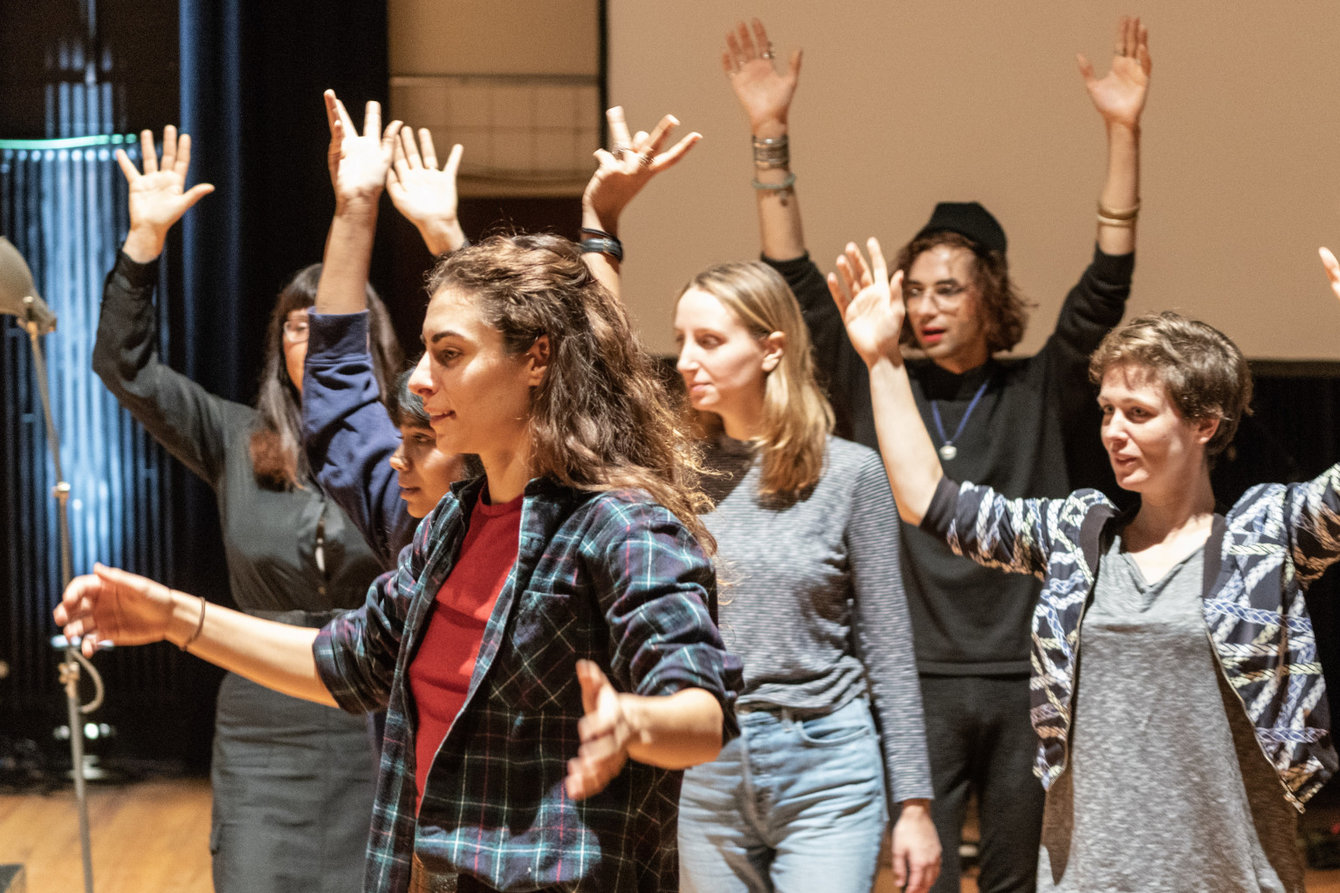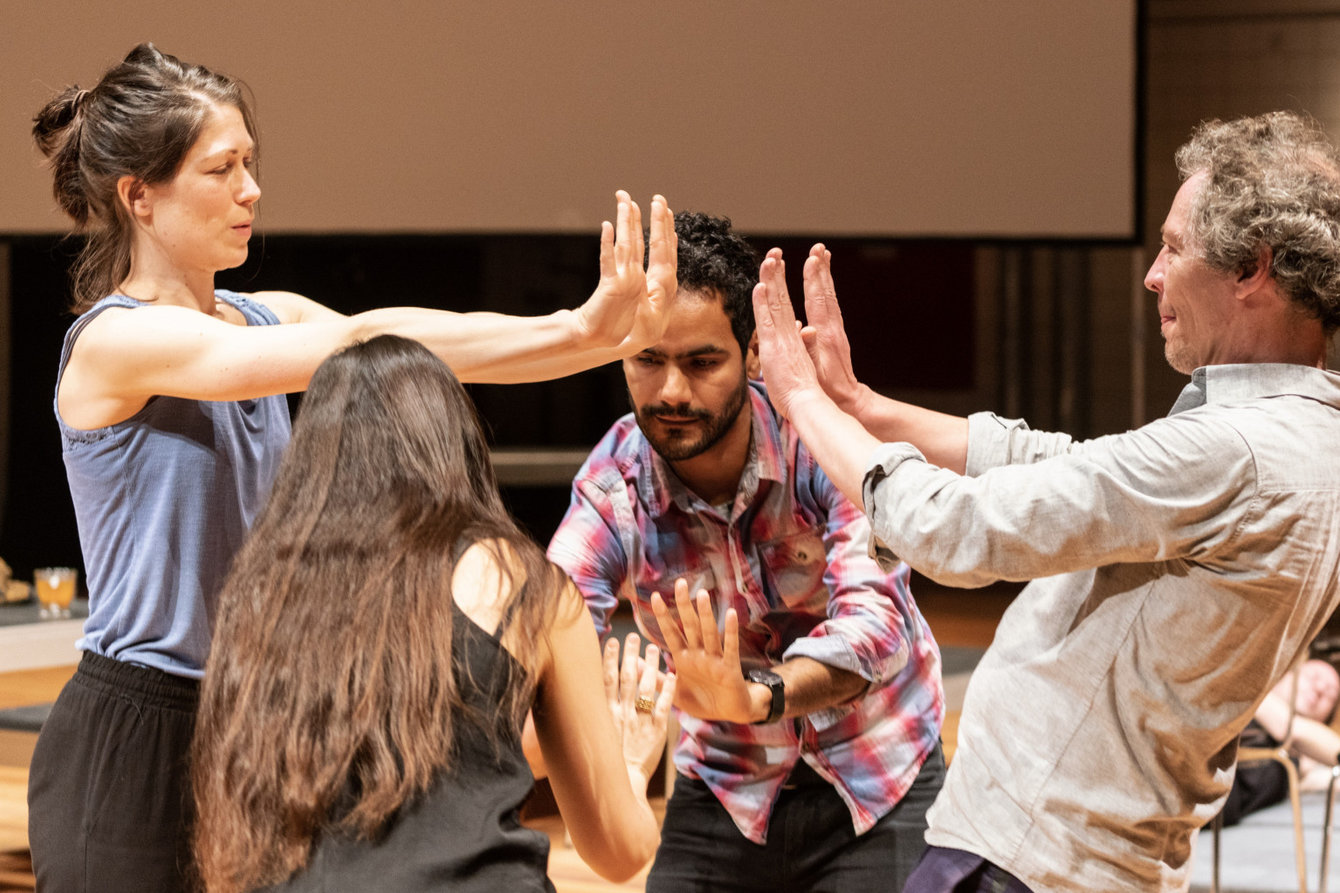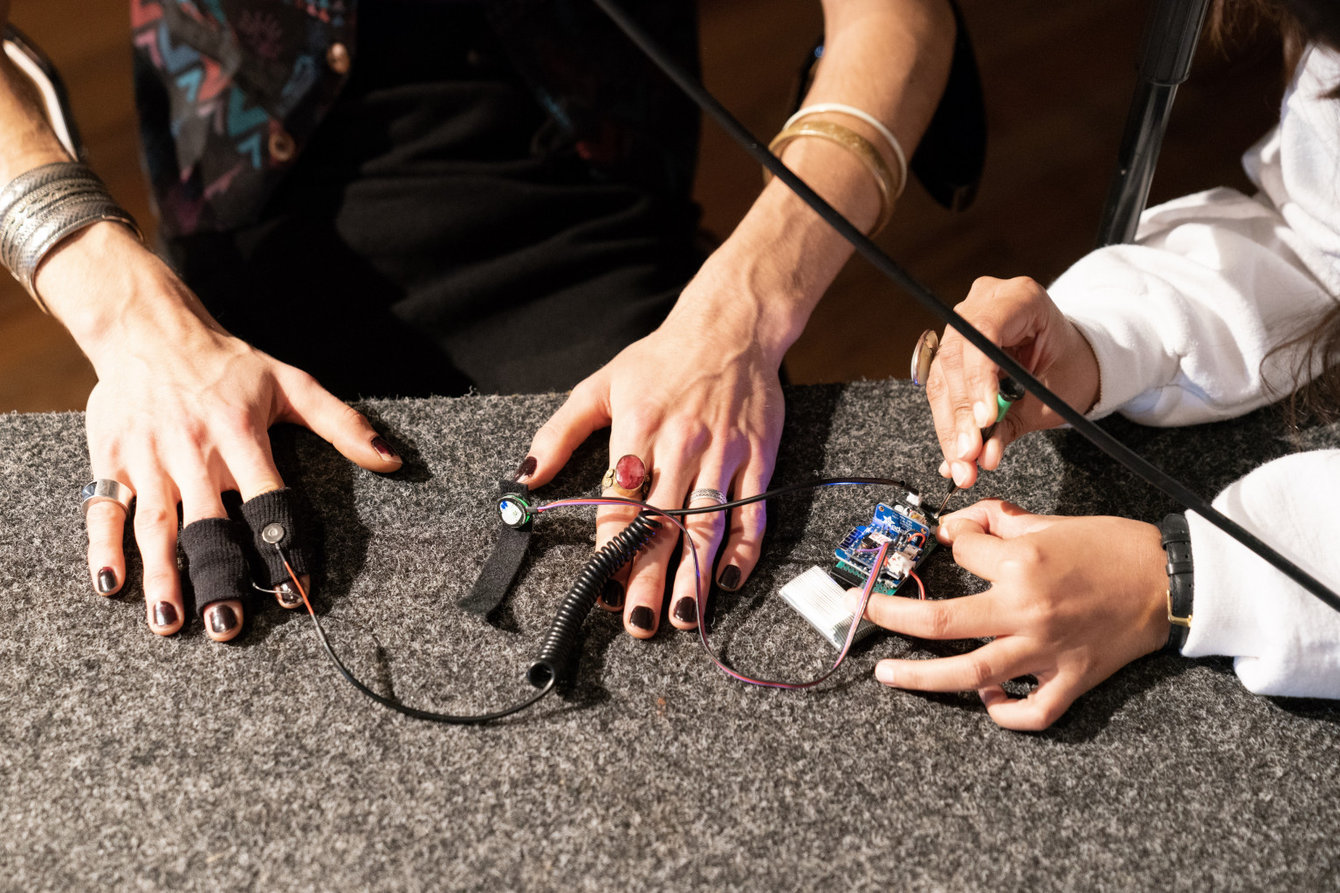IMPACT18 – Matter in Movement
Practices of resistance in art, technology and science - symposium with workshops, lectures, performances and talks
IMPACT18 - Matter in Movement centres around diverse modes of digital, performative and architectural transaction spaces and infrastructures. The interests of Forensic Architecture, Jaya Klara Brekke & Paul Feigelfeld and Christiane Kühl & Chris Kondek (doublelucky productions) direct in this context toward the digital, political, ecological and economic realities of global conflicts, which they explore through artistic and investigative practices.
In focus during the course of the symposium will be the question of how methodologies in activism, performance and technology can be spanned and developed beyond their own disciplinary boundaries.
The IMPACT symposium is flanked by a programme of public events offering insights into the work and methods of this year’s guest contributors.
How to participate:
The transdisciplinary symposium is aimed at artists, practitioners and theorists from the areas of science, journalism, technology, political activism, social work and architecture.
Applicants can apply via the online application form. Please highlight in your letter of motivation how your own research interests or projects connect to the positions proposed by IMPACT18.
Selected applicants receive:
- full accreditation for the symposium and public programm
- travel cost
- local hotel accommodation
- full catering
The working language is English.
Programme:
Supported within the framework of the Alliance of International Production Houses by the Federal Government Commissioner for Culture and the Media.
Documentary
Public Programme
WED 07.11.18 19:00 h
WED 07.11.18 20:00 h
SAT 10.11.18 20:00 h
Lecture Forensic Architecture - Dr. Samaneh Moafi & Nathan Su
Gallery
Workshop Programme
For Participants
Symposium Episode 1
Thursday, 08. November 2018
Chris Kondek und Christiane Kühl (doublelucky productions)
Since 2004 Christiane Kühl and Chris Kondek (doublelucky productions) have been developing performances and installations that investigate the invisible infrastructures of our social, economic and private living circumstances.Christiane Kühl studied modern German literature, philosophy and Spanish. She was an arts editor for newspapers and magazines (among them die tageszeitung and KulturSPIEGEL) and also worked for the festival steirischer herbst for 12 years. Chris Kondek began his career as a video designer in 1990 while a member of the experimental Wooster Group in New York. He worked with Laurie Anderson and Robert Wilson before moving to Germany in 1999 where he has continued creating video for directors including Meg Stuart and Stefan Pucher as well as his own theatrical works.
http://doubleluckyproductions.org/
Workshop with Chris Kondek & Christiane Kühl
Lie to Me
doublelucky proposes a workshop on turning a Polygraph Machine (a.k.a. Lie Detector) into a central performer of a theater piece. Using a Lie Detector as a starting point, the first step will be to work on unraveling the ideologies that are buried in this "truth finding" technology. The second step will focus on devising a theatrical structure that can reveal these ideologies, as well as examine how an actual polygraph machine could be used effectively on stage.
Symposium Episode 2
Friday, 09. November 2018
Jaya Klara Brekke & Paul Feigelfeld
Paul Feigelfeld is a media theorist and currently the Data & Research Architect at TBA21-Academy, the exploratory arm of Thyssen-Bornemisza Art Contemporary, where he develops a digital knowledge sharing platform and collaborative creation ecosystem called the OceAnarchive. He studied Cultural Studies and Computer Science and was assistant to Friedrich Kittler, before he held teaching, research and coordinating positions at Humboldt-Universität zu Berlin and the Centre for Digital Cultures Lüneburg.
Jaya Klara Brekke conducts research on questions of authority, control and power in decentralised systems and architectures. She is the author of the Satoshi Oath and the B9Lab ethical training module for blockchain developers. She is currently writing a PhD on the political geography of the blockchain at Durham University, works with the InfoSec research group at University College London and is a collaborator of RIAT, Institute for Future Cryptoeconomics in Vienna. www.jayapapaya.net
Workshop with Paul Feigelfeld & Jaya Klara Brekke
Blockchain and AI are at the forefront of nervous techno-scientific futurisms. They address questions of control - human or machine, both perspectives nervously anticipating the coming take-over of a machinic intelligence, whether justified or not. This battle for the privileged position of being the species in control falls apart upon closer scrutiny. To manage this, a closer look at the historical and mathematico-logical prerequisites of complexity, control and decidability is also necessary. This workshop will delve into possible strategies and approaches to an environmental and algorithmic condition in which a definite source and agent of control cannot be located and determined in any final way.
Symposium Episode 3
Saturday, 10. November 2018
EXCHANGE DAY: Individually time for the 30 participants for sharing knowledge, personal projects and local field trips.
Symposium Episode 4
Sunday, 11. November 2018
Forensic Architecture (FA) is a research agency, based at Goldsmiths, University of London, which undertakes advanced architectural and media research on behalf of international prosecutors, human rights organisations and political and environmental justice groups.
Forensic architecture is also an emergent academic field developed at Goldsmiths. It refers to the production and presentation of architectural evidence – buildings and urban environments and their media representations.
Dr. Samaneh Moafi is a researcher at Forensic Architecture. She joined the team in 2015, and has since been coordinating investigations that involve environmental violence and climate change, e.g. Ecocide in Indonesia, Centre for Contemporary Nature and Scorched Earth. She received her Doctorate in Philosophy from The Architectural Association (AA) School of Architecture. Her PhD research examines struggle and resistance from the space of the home with a particular focus on Marxist feminist theory. Previously, she led architectural design studios at the Bartlett School of Architecture, University College of London (2014-15) as well as the University of Technology Sydney (2013-14), and has taught a number of technical workshops at the Royal College of Arts and the Architectural Association.
Nathan Su is a researcher at Forensic Architecture, where he has worked on developing digital projection mapping techniques for the analysis of the violation of migrant rights on Mediterranean Sea routes. He graduated from the Architectural Association, where he now runs a course on compositing and 3D animation. He has also taught media workshops at Strelka and The Bartlett (UCL). In 2017 Nathan co-founded Inferstudio, a speculative design practice that seeks to use operative storytelling to craft, find and critique the technologies and cultures of cities.
Workshop with Forensic Architecture
Coincident Projections
The experience, and navigation of urban conflict is taking place from increasingly binary perspectives. Our understanding of space and time is now mediated by a frequent switch between the first person, real-time gaze of our eyes, personal cameras, and Google Streetview, and the omniscient, but temporally discrete perspective of the satellite. The workshop will explore how the intersection of multiple images from street level, and/or from space, when projected onto architectural models can reveal ambiguous sequences of events. Through a collective examination of several of Forensic Architecture’s recent and ongoing cases, participants will investigate the challenges and opportunities that come with our techniques of image projection/analysis.
